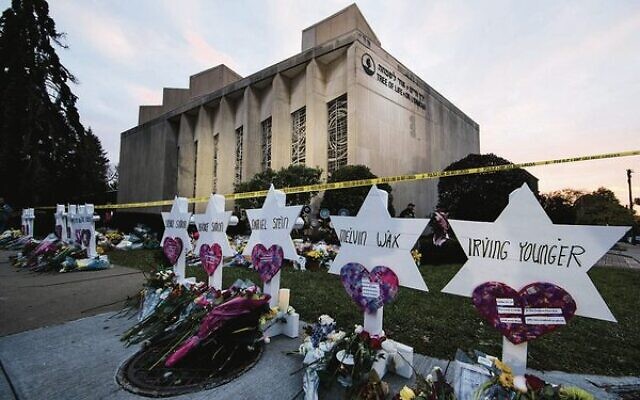Death penalty looms over Pittsburgh massacre trial
"It will be the jury's ultimate decision whether to impose the death penalty – not the government's," federal prosecutors told US District Judge Robert Colville

The man charged in the deadliest antisemitic attack in US history tried for years to avoid a federal jury trial, which would decide whether to convict him of shooting to death 11 people in a Pittsburgh synagogue. Ultimately those efforts failed, and jury selection is less than two weeks away.
Court filings show 50-year-old Robert Bowers had offered to plead guilty in the 2018 attack on the Tree of Life synagogue, a crime for which he was arrested at the scene and made incriminating statements to police. He indicated he was willing to accept life without parole and relinquish appeals rights.
But his offer came with a condition that the US Justice Department declined: In return for a guilty plea, he would no longer face the death penalty. Much of the legal battling that has stretched on for more than four years has been looking to the critical sentencing phase after the guilt-or-innocence portion of the trial is over.
The families of some victims have endorsed a deal for life without parole, which would avoid days or even weeks of painful testimony and the grisly details of autopsy results, crime scene photos and 911 recordings, including calls from two of those slain.
But in a November letter to the Pittsburgh Jewish Chronicle, family members of nine victims said the attack merits the death penalty, and that having Bowers plead guilty would “rob us of our ‘day in court’ and will prevent the Justice Department from punishing the perpetrator to the full extent of the law, as we have sought for the past four-plus years”.
In the end, the Justice Department said no to Bowers’ offer and flatly declined his lawyers’ request for details about the secretive process by which federal death penalty decisions are made.
“It will be the jury’s ultimate decision whether to impose the death penalty – not the government’s,” federal prosecutors told US District Judge Robert Colville in an April 3 filing. “The United States’ ‘goal’ in this prosecution is the pursuit of justice, not punishment.”
Bowers’ lawyers wrote this month that the federal death penalty lacks “a discernible, principled basis for why the Department of Justice continues to pursue death sentences for Mr Bowers, but not in very recent comparable cases”.
The 2019 announcement that the federal government would pursue the death penalty against Bowers was opposed by some of those directly affected by the killings. One of the three congregations he’s charged with attacking – Dor Hadash – put their objections in writing.
A month after taking office, Governor of Pennsylvania Josh Shapiro cited those objections as one reason he would keep the state’s moratorium on the death penalty. He urged state lawmakers to end the state’s death penalty through legislation.
Shapiro, a Democrat who is Jewish, said in February that his “first reaction back in 2018 was that that killer deserved to be put to death. In fact I stated so publicly, at the time. Over time, my thoughts on this issue have evolved”.
Bowers, a resident of Baldwin, Pennsylvania, was charged with dozens of federal crimes for the October 2018 massacre. Investigators have tied him to virulent anti-Jewish social media posts. Prosecutors say he told police at the crime scene that he wanted to kill Jewish people.
TIMES OF ISRAEL, AP

comments